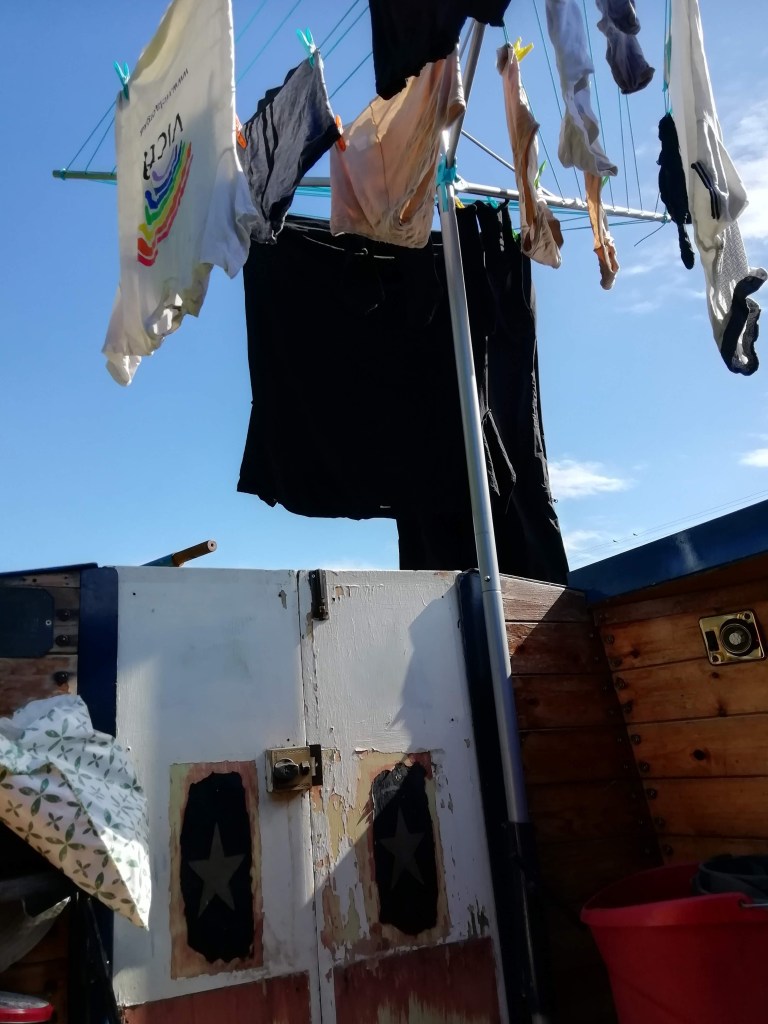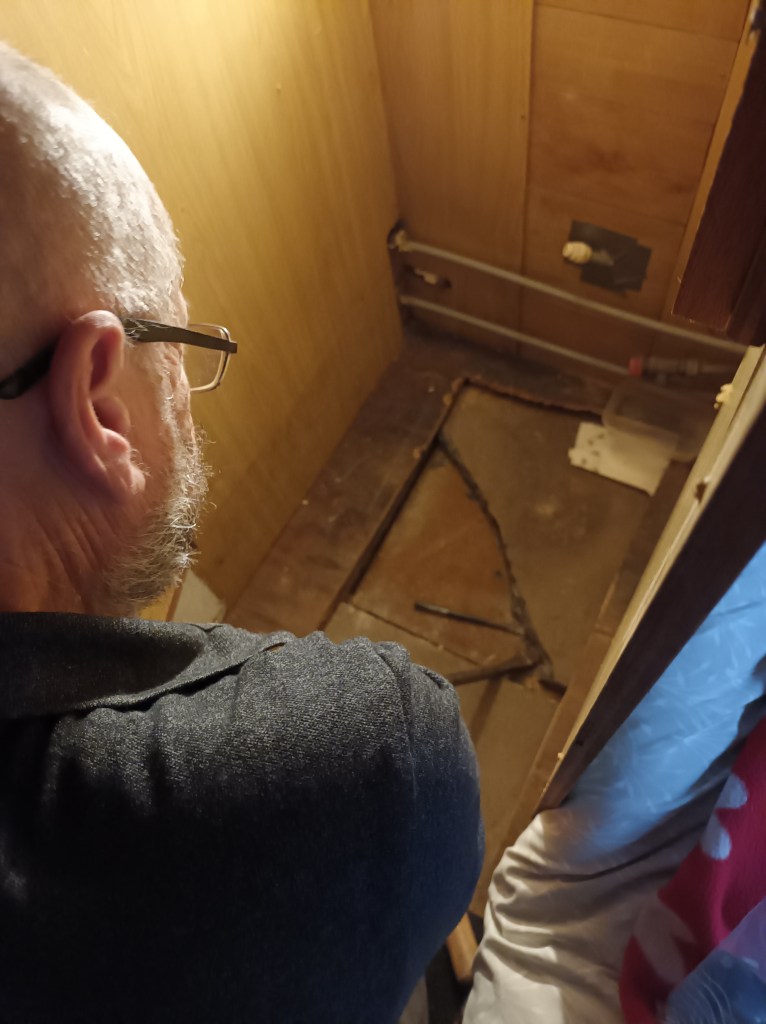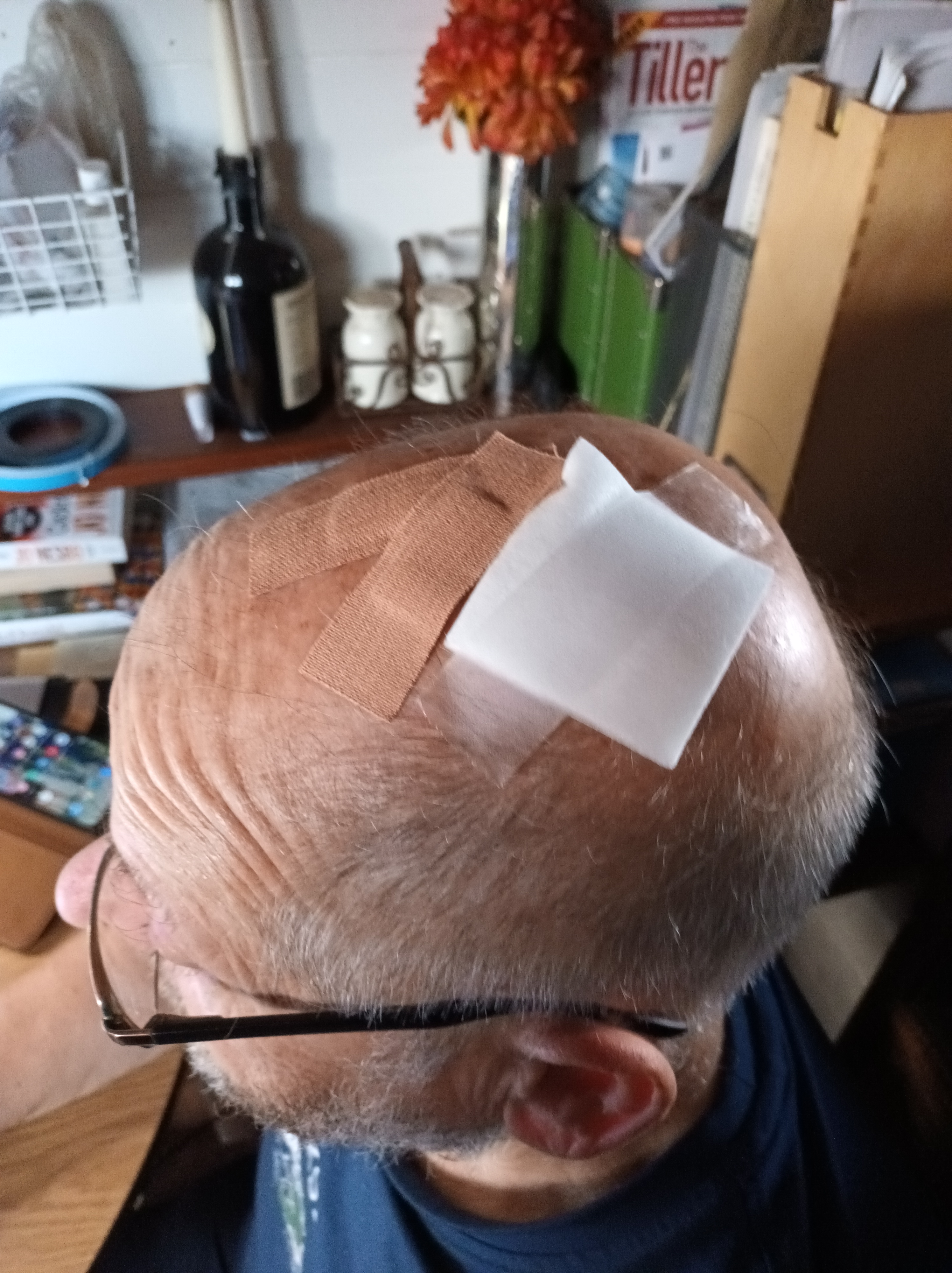This time last year we were in the midst of Lockdown 2, wondering whether Christmas would be a time we could share the presence of loved ones which was the greatest present we wished for.

Since then the world has moved on, and in some ways we have learned to live with a pandemic. Vaccinations, boosters, masks, handwashing, sanitiser, personal space and less crowded socialising have all become familiar to many of us.
Personally we are conscious of where we go and how, where we meet people and we think of their safety as well as ours. We have relaxed but we are still aware of the risks, perhaps because we live in such a self-contained environment.
I honestly fear as a society we are in danger of taking too much for granted, in what we do, how we live and how we consume. Consciously thinking of how and what we consume is life changing. For many of us Covid brought us up short and made us re-evaluate what we value, even temporarily . For us, moving to live on a 50ft narrowboat has conclusively forced us to re-evaluate what we value in terms of lifestyle, and a good example, not to put too fine a point on it, is our dirty washing.

We have no washing machine on board. In the past year or so we have tried all sorts of solutions to live cleanly. Handwashing, standing by water taps on the towpath wielding a homemade dolly created from a boat hook (literally washing our dirty linen in public) to showering with the washing and trampling it underfoot like a French grape harvest – definitely not as delicious an outcome! These got the washing done one way or another but in the main it’s been months of standing in car parks at all hours operating washing machines, trailing heavy bags to family and friends, having our underwear pawed over as part of a service wash, none of which prove economical options.

But now – that’s it. End of tether reached. Decision made. We are going independent on the washing front. We have drying capacity outdoor if the sun shines (although handwrung things take an age to dry, even when I used rolling pins!) and indoor on a folding ceiling rack above the stove in the winter or rain, all we need is a good spin speed and a better way of washing clothes than by hand. A machine that will cope with underwear and jeans, duvet covers and towels. A machine that will spin out as much water as possible. A machine that takes the strain… ah bliss!
So shall we go for a mini washer of the type you see advertised all over the place? We’ve canvassed opinion – some people swear by them, others swear at them. They aren’t cheap, particularly if you’re buying one or more a year…
There’s so much choice… Top loader, front loader, it’s hard to know where to start. We began by making the big decisions. A full sized machine so parts are easier to come by, replacements available and it will have the highest spin speed possible to reduce drying time, So where to put the machine when space is at a premium?
Inset in a kitchen cupboard is just not practical – it would take up more than one cupboard and that’s our vital food, equipment and cleaning storage.
In the bathroom was something we toyed with – taking out the basin, trying to squeeze a washing machine between the gunwhales and the loo with the plumbing encroaching into the kitchen cupboard behind it so it wouldn’t sit too far out. Not ideal though and where to put the basin? If we could find a countertop basin maybe it could sit on top of the washer but the plumbing for basins needs to drain so the basin would end up rather high!

We dismissed the front cratch as that doubles as a bootroom and fuel store in the winter; a conservatory and extra living space in summer. Putting a washing machine in there would completely remove the space from use for anything else.
Steve has spent weeks stalking the boat with a tape measure and thinking. The decision is to accommodate a washing machine in the wardrobe at the end of the fixed main bed. Last year we converted the hanging space to shelving to give us more storage space. Top shelf is linen, second shelf is mine, third shelf is Steve’s and beneath rest shopping bags, rucksacks etc. Bags and rucksacks will be moved to the cratch for now, and Steve has reordered his clothing shelf contents to under the sofa and under the bed.
Just as there would be in a conventional landbased home that’s old and previously loved, reorganising electrics and water pipes to service the machine is necessary. It’s now underway but we have a uniquely floating home requirement – to remove sufficient ballast from below the floor to accommodate the weight of the machine and preventing the boat tipping violently over. That meant getting up the floor, and discovering what ballast was in use. In other parts of the boat we have found kerb stones in use and they are incredibly difficult to remove when you have little wiggle room to get anything round them to lever them out. Fortunately under the wardrobe proved to be paving slabs – easier to remove in pieces.

Having got sufficient paving slabs out to cope with the weight of the machine there’s another rather more extreme requirement. The base of the wardrobe has to be extended by 2cms to fit the machine. This means moving a partition wall which is housing shelving, and not damaging existing pipes from the hot water tank in the process. It is painstaking work conducted in tiny cramped spaces.
Once the space is ready, which probably will take some considerable amount of time yet how the machine is to be powered will require new power cables, purchase of an inverter so it can run as we don’t have mains electricity. All of this has been part of Steve’s intensive pre-planning, involving visits to Victron suppliers and discussions with washing machine manufacturers.
When we are ready for the machine to finally arrive it will have to come in the stern doors and down the twisting steps through a doorway which will have to be removed to enable it to get into its new location. We will need to rely on strong friends and reliable straps to help lower it down and manoeuvre it into place.
I recognise the effort, the sheer hard work going in by Steve to make us independent on the washing front is something which underlines that it’s not just about buying a machine and slotting it in. He’s suffered spasms of cramp from being wedged in a tiny space sawing away, smashed his head on overhanging shelves and literally sweated blood over getting the boat ready for this machine.
Seeing this extreme effort behind the scenes makes me realise that getting a washing machine is not something to take for granted.
I fear we are in danger of taking many things for granted because they become automatic, things we don’t really think about. Our incredible education provision from pre-school to university is remarkable, but how often do we stop to recognise just what a priviledge it is to have this provision available. This week’s I’ve had hospital tests, flu and Covid booster jabs. They have been timely reminders that the National Health Service and all who work within it are in danger of being taken for granted, and not sufficiently appreciated.
In lockdown we came to value our local shops and I hope we won’t desert them amid the marketing clamour of Black Friday or Cyber Monday, funded by the multinationals.
Most of all though as we come to Christmas 2021, let’s not take family and friends for granted. Their presence, not commercialised hype is what matters. It’s a lesson we learned the hard way through the early stages of the pandemic – let us not forget it, and let our gratitude for them light our Christmas.







